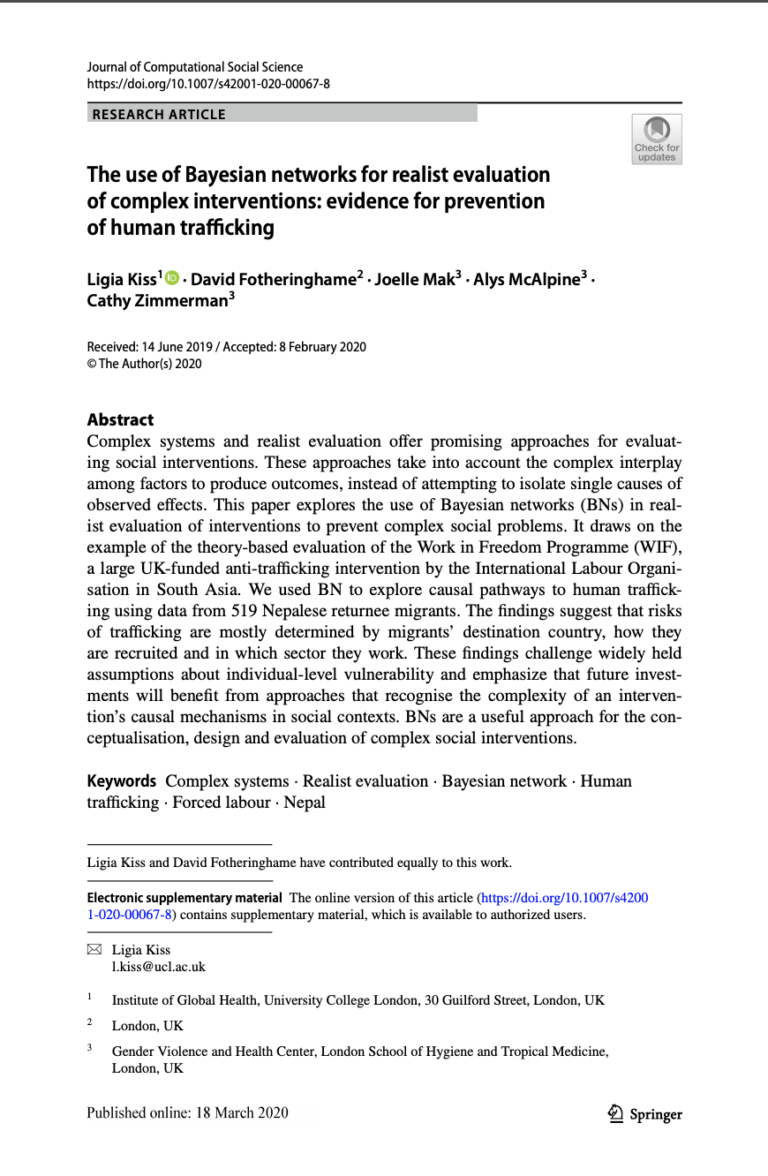Complex systems and realist evaluation offer promising approaches for evaluating social interventions. These approaches take into account the complex interplay
among factors to produce outcomes, instead of attempting to isolate single causes of
observed effects. This paper explores the use of Bayesian networks (BNs) in realist evaluation of interventions to prevent complex social problems. It draws on the
example of the theory-based evaluation of the Work in Freedom Programme (WIF),
a large UK-funded anti-trafficking intervention by the International Labour Organization in South Asia. We used BN to explore causal pathways to human trafficking using data from 519 Nepalese returnee migrants. The findings suggest that risks
of trafficking are mostly determined by migrants’ destination country, how they
are recruited and in which sector they work. These findings challenge widely held
assumptions about individual-level vulnerability and emphasize that future investments will benefit from approaches that recognize the complexity of an intervention’s causal mechanisms in social contexts. BNs are a useful approach for the conceptualization, design and evaluation of complex social interventions

